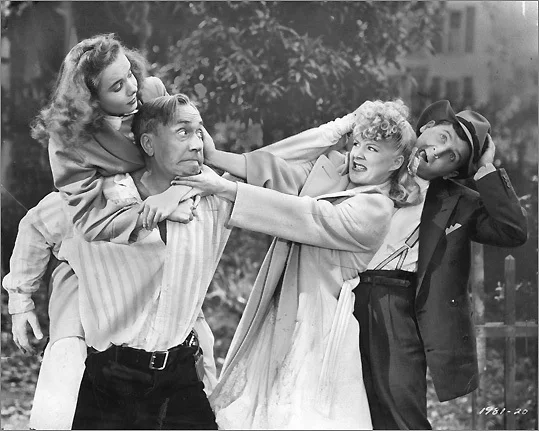 |
| Joseph Cotten and Orson Welles in Journey Into Fear |
Cast: Joseph Cotten, Dolores Del Rio, Everett Sloane, Ruth Warrick, Orson Welles, Agnes Moorehead, Jack Durant, Eustace Wyatt, Frank Readick, Edgar Barrier, Jack Moss, Hans Conried.
Screenplay: Orson Welles, Joseph Cotten,
based on a novel by Eric Ambler.
Cinematography: Karl Struss.
Art direction: Albert S. D'Agostino, Mark-Lee Kirk.
Film editing: Mark Robson.
Music: Roy Webb.
While they were working on
The Magnificent Ambersons, Orson Welles and Joseph Cotten used some spare time to rewrite a screenplay by Richard Collins and Ben Hecht for a property owned by RKO, Eric Ambler's spy novel
Journey Into Fear. Welles would have directed, but he was still tied up on
Ambersons, so he assigned the job to Norman Foster, though he still had time to play the secondary role of Col. Haki, and as producer to see to it that many of the actors he had worked with -- Cotten, Dolores Del Rio, Everett Sloane, Ruth Warrick, and Agnes Moorehead -- played key roles. The result is a film whose complicated plot never quite resolves itself into clarity, but which abounds in Wellesian moments, such as the desperate struggle on the rainswept ledge of a hotel at the film's climax. Unfortunately, Welles's battle with RKO over the editing of
Ambersons resulted in his firing, and the editing of
Journey Into Fear was similarly taken out of his hands.









